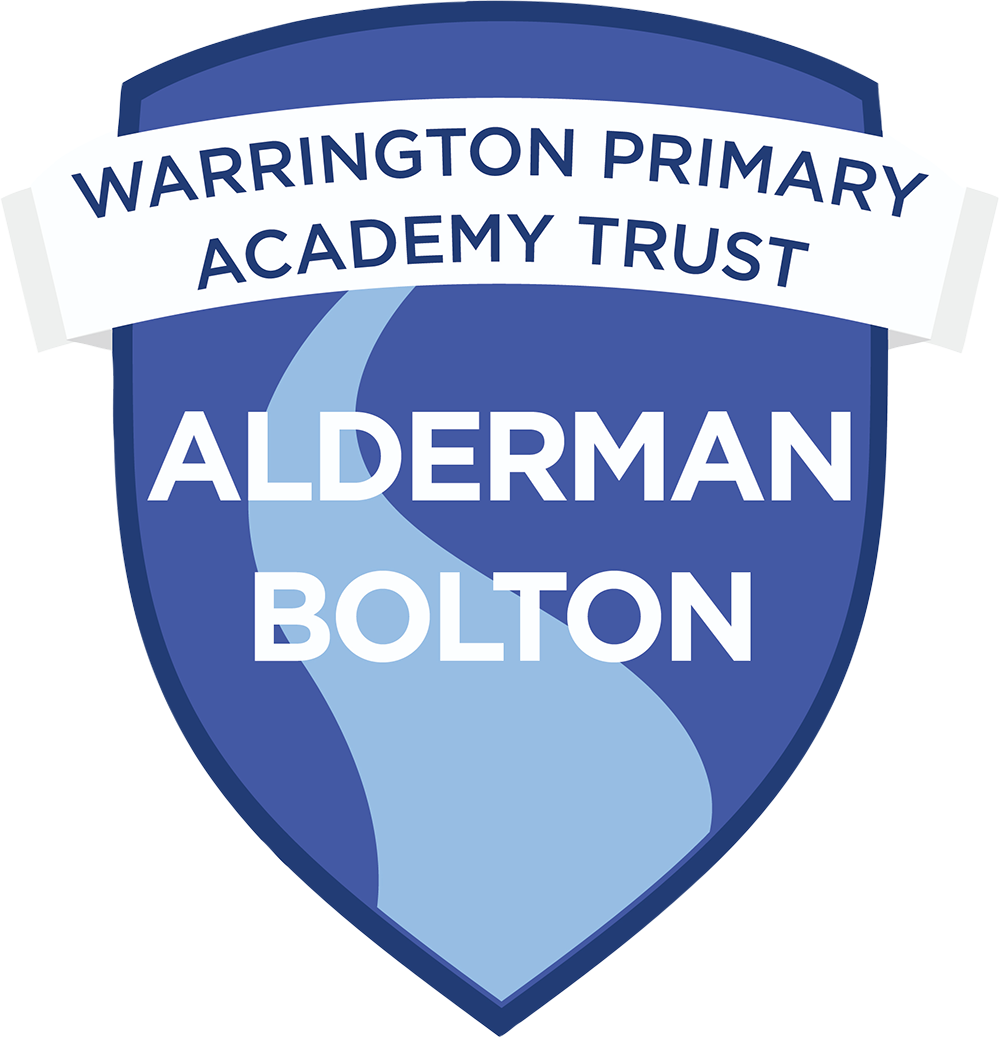English
Writing
At Alderman Bolton, we aim to promote high standards of language and literacy by equipping children with a strong command of the spoken and written word. Spoken language underpins the development of reading and writing. The quality and variety of language that pupils hear and speak are vital for developing their vocabulary, grammar and their understanding. When planning the curriculum, teachers and leaders prioritise progression in knowledge of language and of its forms, usage, grammar and vocabulary.
The writing process involves transcription (spelling and handwriting) and composition (articulating ideas and structuring them in speech, before writing them down) In addition, pupils are taught how to plan, revise and evaluate their writing. This requires transcription skills to be secure. As a result, fluent transcription skills are a critical focus for the early years and key stage 1.
Implementation
The teaching of writing is implemented through children’s high-quality literature. We do this through an evidence based approach using ‘Read to Write’ units of work. The well planned, sequential units have been carefully mapped out so the entire statutory curriculum for writing is covered for each year group. The units centre on engaging, vocabulary-rich texts, with a wealth of challenging writing opportunities. Skills are built up through repetition throughout the units and children are given plenty of opportunities to apply these skills in their writing. Several of these carefully selected vehicle texts also have strong thematic links to the Science, History and Geography curriculum.
The Read to Write units include:
- Clear Sequential Episodes of Learning
- Example Texts (greater depth WAGOLL)
- Learning Objectives that link to the teaching sequence (Immerse, Analyse, Plan Write)
- Vocabulary Learning
- Contextualised Spelling, Grammar & Punctuation
- Writer’s Knowledge Linked to National Standards
- Sentence Accuracy Work Linked to National Standards
- Progressions Documents with Year Group Expectations
- Reflecting on Unit Outcomes: Planning for Next Steps
- Example Planning Format
- Wider Reading for the Wider Curriculum
- A Wealth of Resources Linked to the National Standards
- Explicit Links to the National Curriculum
Reading
At Alderman Bolton Primary we promote a strong love of reading, ensuring every child becomes a reader and has access to a wide variety of texts. Our curriculum from Nursery to Year 6 is vocabulary rich and we successfully use immersive texts through our Read to Write and Steps to Read programmes to develop the wide range of skills and knowledge needed to be a confident reader.
We start our reading journey from day one in Nursery. Through fostering a love of reading, providing books in all areas of the environment and introducing phonics, our children are submerged in a text rich environment. The pupils continue to build on their phonic skills throughout EYFS and KS1, learning the 44 different sounds, reading and spellings of a variety of ‘tricky’ words, such as: once, have, said and where. Our phonics lessons are fun, interactive and linked to a range of books and spellings. Monster phonics is a whole class systematic synthetic phonics program with decodable books for reception and key stage one. It is also used as an intervention for key stage one and key stage two. Monster phonics teaches children to read by enabling them to identify individual graphemes (letter combinations) and blend the sounds (phonemes) together to read a word. It is a multi-sensory approach as the sounds are categorised into colours and monsters. This creates interest and engagement and helps the children to remember the sounds.
As children become more independent with their reading they have access to a wide range of books with a rich vocabulary both in our classrooms and online via Accelerated Reader. Children have many opportunities to read for pleasure, as well as structured reading sessions, where children investigate the techniques of the writer. This enables our children to make strong links between reading and writing.
Our aim is to develop a whole school love of reading, making every child a reader and developing a love of books.
We offer our pupils a range of support to ensure they become successful readers. Led by our Tutors and Teaching Assistants, we timetable phonics intervention groups in KS1 and lower KS2.
We encourage all our pupils to read widely across both fiction anccessful for our children.d non-fiction to develop their knowledge and vocabulary. Accelerated Reader is a program that is used from Year 1 through to Year 6 which provides teachers with the information that they need to monitor pupils’ reading practice and make informed decisions to guide their future learning. Through the star reading and early reader assessments, a comprehensive set of reports reveal how well a pupil has been reading, how they have understood it and at what level of complexity. Literacy skills are also measured along with vocabulary growth.
It is our intention to ensure that, by the end of their primary education, all pupils are able to read fluently, and with confidence, in any subject in their forthcoming secondary education, as well as having a personal enjoyment of reading.
